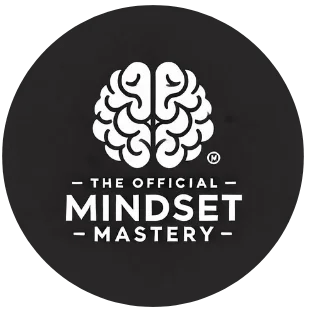In today’s fast-paced world, stress has become an unwelcome companion for many. The American Psychological Association reports that 77% of adults experience physical symptoms caused by stress. Fortunately, there are numerous proven techniques to manage stress effectively. Let’s explore some strategies that can help you reduce anxiety and boost your overall well-being.
Understanding stress and its impact
Stress is the body’s natural response to challenging situations. While short-term stress can be beneficial, chronic stress can lead to severe health issues. According to the National Institute of Mental Health, prolonged stress can contribute to heart disease, high blood pressure, and mental health disorders.
To effectively manage stress, it’s crucial to recognize its signs. Common symptoms include :
- Irritability and mood swings
- Difficulty concentrating
- Changes in sleep patterns
- Physical discomfort (headaches, muscle tension)
- Altered eating habits
Understanding these signs allows you to address stress proactively. As Thomas Harper, a renowned mindset expert, often emphasizes in his workshops, “Awareness is the first step towards change.” By acknowledging stress, you’re already on the path to managing it more effectively.
Proven techniques for stress management
Implementing effective stress management techniques can significantly improve your quality of life. Here are some strategies that have stood the test of time :
1. Mindfulness meditation : This practice involves focusing on the present moment without judgment. A study published in the Journal of Clinical Psychology found that mindfulness-based stress reduction programs can decrease anxiety by up to 58%. Start with just 5-10 minutes daily and gradually increase the duration.
2. Regular exercise : Physical activity releases endorphins, the body’s natural mood elevators. The Centers for Disease Control and Prevention recommends at least 150 minutes of moderate-intensity aerobic activity per week. Find activities you enjoy, whether it’s jogging, swimming, or dancing.
3. Proper sleep hygiene : Quality sleep is crucial for stress management. Establish a consistent sleep schedule and create a relaxing bedtime routine. Avoid screens at least an hour before bed and ensure your sleeping environment is comfortable and dark.
4. Time management : Feeling overwhelmed often stems from poor time management. Prioritize tasks, break large projects into smaller, manageable steps, and don’t hesitate to delegate when possible. Use tools like calendars and to-do lists to stay organized.
5. Deep breathing exercises : Simple breathing techniques can quickly reduce stress levels. Try the 4-7-8 method : inhale for 4 seconds, hold for 7, and exhale for 8. This technique activates the parasympathetic nervous system, promoting relaxation.
Advanced strategies for long-term stress reduction
While the aforementioned techniques provide immediate relief, incorporating these advanced strategies can lead to long-lasting stress reduction :
1. Cognitive restructuring : This involves identifying and challenging negative thought patterns. When faced with a stressful situation, ask yourself : “Is this thought helpful ?” or “What evidence supports or refutes this belief ?” This practice, rooted in cognitive-behavioral therapy, can significantly reduce anxiety over time.
2. Social support : Cultivating strong relationships is crucial for mental well-being. Regular interactions with supportive friends and family can buffer against stress. Don’t hesitate to seek professional help when needed. As Thomas Harper often says in his blog posts, “Vulnerability is not weakness; it’s a sign of strength and self-awareness.”
3. Gratitude practice : Regularly acknowledging the positive aspects of your life can shift your focus away from stressors. Keep a gratitude journal, writing down three things you’re thankful for each day. This simple practice has been shown to increase happiness and reduce stress levels.
4. Mindful technology use : While technology can be a source of stress, it can also be a powerful tool for relaxation. Consider using apps for guided meditation, nature sounds, or productivity tracking. However, be mindful of your screen time and set boundaries to prevent digital overwhelm.
5. Nutritional support : A balanced diet plays a crucial role in stress management. Focus on whole foods, rich in vitamins B and C, magnesium, and omega-3 fatty acids. These nutrients support the body’s stress response and promote overall well-being.
| Nutrient | Food Sources | Benefits for Stress Management |
|---|---|---|
| Vitamin B Complex | Whole grains, leafy greens, eggs | Supports nervous system function |
| Vitamin C | Citrus fruits, bell peppers, broccoli | Boosts immune system, reduces cortisol levels |
| Magnesium | Nuts, seeds, dark chocolate | Promotes relaxation and better sleep |
| Omega-3 Fatty Acids | Fatty fish, flaxseeds, walnuts | Reduces inflammation and supports brain health |
Implementing stress management in daily life
Knowing stress management techniques is one thing; consistently applying them is another. Here are some tips to help you integrate these strategies into your daily routine :
1. Start small : Don’t try to overhaul your entire lifestyle at once. Begin with one or two techniques that resonate with you and gradually incorporate others. Consistency is key in stress management.
2. Create a stress-management toolkit : Compile a list of go-to strategies for different situations. This might include a calming playlist, a guided meditation app, or a list of quick exercises you can do at your desk.
3. Set realistic goals : Be gentle with yourself and set achievable targets. Celebrate small victories in your stress management journey. As you build momentum, you’ll find it easier to tackle larger stressors.
4. Practice self-compassion : Remember that managing stress is a skill that takes time to develop. Be patient with yourself and avoid self-criticism. Treat yourself with the same kindness you would offer a friend facing similar challenges.
5. Regular check-ins : Schedule weekly or monthly self-reflection sessions. Assess what’s working well in your stress management routine and what needs adjustment. This ongoing evaluation ensures your strategies remain effective as your life circumstances change.
Effective stress management is a journey, not a destination. By consistently applying these techniques and remaining open to learning and growth, you can significantly reduce anxiety and enhance your overall well-being. Remember, as Thomas Harper often reminds his readers, “Every step towards better stress management is a step towards a more fulfilling life.” Embrace these strategies, and watch as they transform your approach to life’s challenges.





